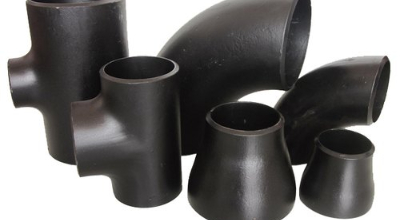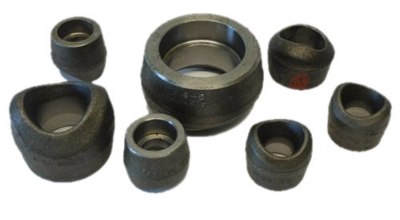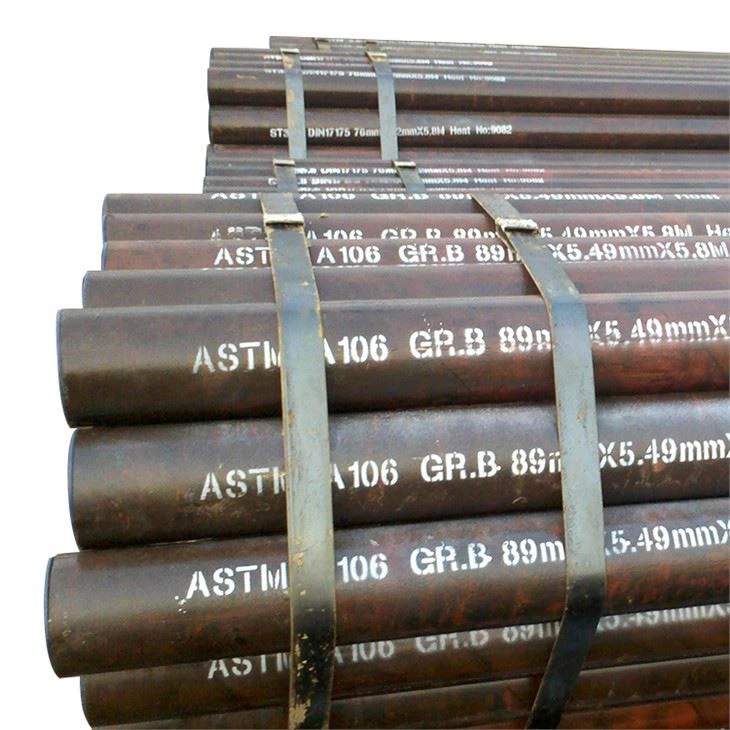Alloy Steel Products
Alloy Steel Suppliers, Alloy Steel Composition, Alloy Steel uses, Alloy Steel Applications.
Alloy Steel Products, Alloy Steel Products Manufacturers, Alloy Steel Manufacturers In India, Alloy Steel Suppliers, Alloy Steel Products Exporter, Alloy Steel Composition, Alloy Steel Grades, Alloy Steel Products Lists, Alloy Steel Pipe, Alloy Steel Fittings.

What is Alloy Steel?
Alloy steel is created by combining carbon steel with additional elements, including metals and non-metals. The environmental, chemical, and physical characteristics of these steels vary based on the alloying elements. The ratio of these components can provide diverse mechanical properties.
The composition of alloy steel typically includes elements such as molybdenum, manganese, nickel, chromium, vanadium, silicon, and boron. These elements are added to enhance the steel’s strength, hardness, wear resistance, and toughness.
Kalpataru Piping Solutions is a leading supplier of high-quality alloy steel products, recognized for our dedication to excellence and reliability. As one of Europe’s top manufacturers, we provide a wide range of alloy steel products, including pipes, fittings, flanges, components, and round bars. Each product is engineered with precision and meets the highest industry standards, ensuring outstanding durability and performance.
We offer a diverse selection of properties of alloy steel tailored to various needs. Our products are made from premium alloy steel compositions, delivering the strength and resilience required for challenging applications. Our strict quality control processes throughout manufacturing ensure that every product we deliver is consistent and reliable.
As trusted alloy steel tube suppliers in India, we not only cater to the domestic market but also export our products worldwide. Our focus on customer satisfaction and our commitment to quality have made us a preferred choice for alloy steel applications globally.
For superior alloy steel products like plates, pipes, sheets, bars, and flanges, Kalpataru Piping Solutions is your reliable partner. Contact us today to learn more about our premium alloy steel offerings and how we can fulfill your requirements.
Alloy Steel Product
Chemical Composition of Alloy Steel
The chemical composition of alloy steel depends on its type and application. Generally, it contains iron as the base metal along with other alloying elements like carbon, manganese, nickel, chromium, molybdenum, and vanadium.
| Element | Function |
| Carbon | Enhances strength and hardness while reducing ductility. |
| Manganese | Improves toughness and wear resistance. |
| Nickel | Adds strength and toughness, particularly at low temperatures. |
| Chromium | Provides corrosion and oxidation resistance. |
| Molybdenum | Increases strength, hardness, and resistance to high temperatures and wear. |
| Vanadium | Enhances strength, wear resistance, and toughness. |
Types of Alloy Steel
Alloy steel is divided into several subcategories, each tailored to specific applications and requirements. Here are the key types:
- High-Strength Low Alloy (HSLA) Steel
- High-Alloy Steel
- Stainless Steel
- Microalloyed Steel
- Advanced High-Strength Steel (AHSS)
- Maraging Steel
- Tool Steel
Each type of alloy steel is crafted to meet specific demands, offering unique properties and benefits tailored to various industrial applications
Alloy Steel Products & Applications
Alloy steel is a versatile material widely used across various industries due to its enhanced properties like strength, durability, and resistance to corrosion and heat. Here’s a look at some common alloy steel products and their applications.
- Plates: Thick, flat sheets of alloy steel used in applications requiring durability and wear resistance, such as machinery construction and pressure vessels.
- Pipes: Preferred for transporting liquids and gases due to their high strength and superior corrosion resistance compared to standard carbon steel pipes.
- Sheets: Thin, flat alloy steel pieces commonly used in automotive components, industrial machinery, and consumer goods manufacturing.
- Bars: Available in various shapes, sizes, and grades, alloy steel bars are widely used in construction, machine manufacturing, and heavy equipment.
- Flanges: Alloy steel flanges come in various sizes and types, from ½ inch to 48 inches in nominal diameter. They are used in oil and gas, petrochemical, offshore drilling, and power generation industries for connecting pipelines and equipment.
- Forgings: Created by shaping heated alloy steel, forgings are essential for manufacturing durable components for heavy-duty machinery and industrial equipment.
- Wire: Alloy steel wires are used to make springs, cables, and ropes, offering excellent flexibility and tensile strength.
- Castings: Produced by pouring molten steel into molds, castings are used for high-stress components like engine blocks, gears, and industrial equipment.
Alloy steel’s adaptability makes it an essential material for industries such as construction, automotive, aerospace, energy, and manufacturing.
We Export To Alloy Steel Products
New Zealand, Ukraine, Brazil, Azerbaijan, Angola, United Kingdom, Philippines, Oman, France, Algeria, Macau, Sri Lanka, Tibet, Norway, Mexico, Venezuela, Denmark, Russia, Bhutan, Estonia, Austria, Vietnam, Argentina, Turkey, Greece, Romania, Bahrain, Bangladesh, Afghanistan, Italy, Poland, Zimbabwe, Thailand, India, Kenya, Ecuador, Puerto Rico, Nepal, Malaysia, Bulgaria, Libya, Slovakia, Chile, Serbia, Australia, Poland, Iran, Costa Rica, Peru, South Korea, Iraq, Iran, Indonesia, Spain, Trinidad & Tobago,Tunisia, Qatar, Japan, Canada, Taiwan, Yemen, Mongolia, Czech Republic, Israel, Ghana, Egypt, Nigeria, Saudi Arabia, United Arab Emirates, Namibia, Hungary, South Africa, Hong Kong, Croatia, Colombia, Lebanon, Nigeria, Portugal, Finland, Pakistan, Jordan, Sweden, Belgium, Gambia, Lithuania, United States, Chile, Bolivia, Germany, Singapore, Ireland, Gabon, Kuwait, Switzerland, Mexico, Belarus, Kazakhstan, Morocco, China, Netherlands, Germany, Belgium, Italy, Turkey, Denmark and UK.
FAQ
What is alloy steel?
Alloy steel is steel alloyed with elements like molybdenum, manganese, nickel, chromium, vanadium, silicon, and boron. These elements enhance the steel’s strength, hardness, wear resistance, and toughness. The concentration of alloying elements can range from 1% to 50%, depending on the desired properties.
Is alloy steel good quality?
Alloy steel is known for its high quality. It offers enhanced resistance to corrosion and performs well in high-temperature environments. Additionally, alloy steels can be heat-treated to further boost their strength and hardness, making them stronger and tougher compared to carbon steels.
What is alloy steel made of?
Alloy steel is made by adding various elements to carbon steel, including molybdenum, manganese, nickel, chromium, vanadium, silicon, and boron. These alloying elements enhance the steel’s properties, improving strength, hardness, wear resistance, and toughness.
OTHER ALLOY STEEL
AVAILABLE MATERIAL
Related Products
-
- Alloy Steel P11 Buttweld Fitting
- Alloy Steel P5 Buttweld Fitting
- Alloy Steel P9 Buttweld Fitting
- Alloy Steel P91 Buttweld Fitting
- Alloy Steel p12 Buttweld Fitting
- Alloy Steel F22 Forged Fitting
- Alloy Steel F11 Forged Fitting
- Alloy Steel F5 Forged Fitting
- Alloy Steel F9 Forged Fitting
- Alloy Steel F91 Forged Fitting
- Alloy Steel F12 Forged Fitting
- Alloy Steel P22 Plates & Alloy Steel P22 Sheets
- Alloy Steel P11 Plates & Alloy Steel P11 Sheets
- Alloy Steel P5 Plates & Alloy Steel P5 Sheets
- Alloy Steel P9 Plates & Alloy Steel P9 Sheet
- Alloy Steel P91 Plates & Alloy Steel P91 Sheets
- Alloy Steel P12 Plates & Alloy Steel P12 Sheets
- Alloy Steel P22 Long Radius Bend
- Alloy Steel P11 Long Radius Bends
- Alloy Steel P5 Long Radius Bends
- Alloy Steel P9 Long Radius Bends
- Alloy Steel P91 Long Radius Bends
- Alloy Steel P12 Long Radius Bends
- Alloy Steel P22 Pipes & Alloy Steel P22 Tubes
- Alloy Steel P11 Pipes & Alloy Steel P11 Tubes
- Alloy Steel P5 Pipes & Alloy Steel P5 Tubes
- Alloy Steel P9 Pipes & Alloy Steel P9 Tubes
- Alloy Steel P91 Pipes & Alloy Steel P91 Tubes
- Alloy Steel P12 Pipes & Alloy Steel P12 Tubes
- Alloy Steel F5 Olets
- Alloy Steel F91 Olets
- Alloy Steel F12 Olets
- Alloy Steel F9 Olet
- Alloy Steel P22 Round Bars & Alloy Steel P22 Wires
- Alloy Steel P11 Round Bars & Alloy Steel P11 Wires
- Alloy Steel P5 Round Bars & Alloy Steel P5 Wires
- Alloy Steel F9 Round Bars & Alloy Steel F9 Wires
- Alloy Steel F91 Round Bars & Alloy Steel F91 Wires
- Alloy Steel F12 Round Bars & Alloy Steel F12 Wires
- Alloy Steel F22 Flanges
- Alloy Steel F11 Flanges
- Alloy Steel F5 Flanges
- Alloy Steel F9 Flanges
- Alloy Steel F91 Flanges
- Alloy Steel F12 Flanges
- Alloy Steel F22 Olets
- Alloy Steel F11 Olet









